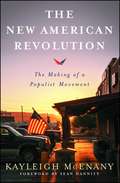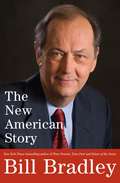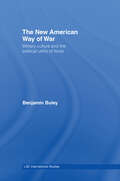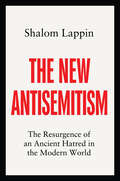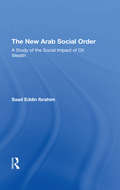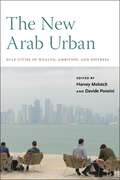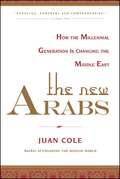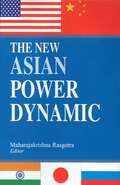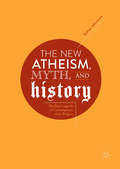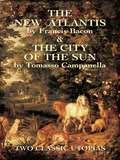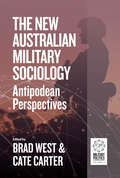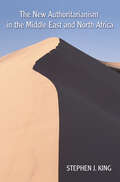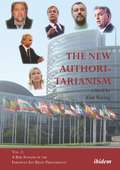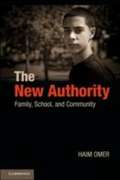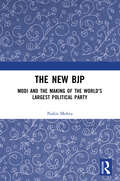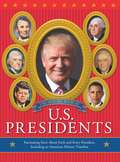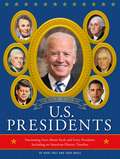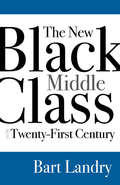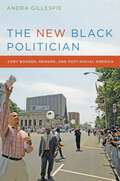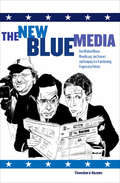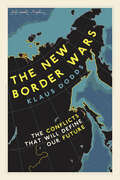- Table View
- List View
The New American Revolution: The Making of a Populist Movement
by Sean Hannity Kayleigh McEnanyIn the bestselling tradition of Hillbilly Elegy comes an exploration of the American heartland—a fascinating and eye-opening collection of interviews and stories about the powerful grassroots populist movement of frustrated Americans left behind by the government that changed the landscape of political campaigns forever.Political writer and official RNC spokesperson Kayleigh McEnany spent months traveling throughout the United States conducting interviews with Americans, whose powerful and moving stories were forgotten or intentionally ignored by our leaders. Through candid, one-on-one conversations, they discussed their deeply personal stories and the issues that are most important to them, such as illegal immigration, safety from terrorist attacks, and religious freedom. The New American Revolution chronicles both the losses of these grassroots voters, as well as their ultimate victory in November 2016. Kayleigh also includes interviews with key figures within President Trump’s administration—including Ivanka Trump, Secretary Ben Carson, Jared Kushner, and many more—and their experiences on the road leading up to President Trump’s historic win. Kayleigh’s journey takes her from a family cabin in Ohio to the empty factories in Flint, Michigan, from sunny Florida to a Texas BBQ joint—and, of course, ends up at the White House. The collective grievance of the American electorate reveals a deep divide between leaders and citizens. During a time of stark political division, Kayleigh discovers a personal unity and common thread of humanity that binds us nevertheless. Through faith in God and unimaginable strength, these forgotten men and women have overcome, even when their leaders turned their heads. The New American Revolution is an insightful book about the triumph of this powerful movement and a potent testament to the importance of their voice.
The New American Story
by Bill Bradley“Politics is stuck,” writes Bill Bradley, in this insightful, informative, and provocative book about America at a crossroads, but “idealism isn’t dead. It can be reawakened. ” What will it take to make America a better, stronger, truer country? asks the bestselling author, former Knicks star, and onetime presidential candidate. Bill Bradley believes that America is at a teachable moment when we are compelled to reevaluate our political system, our leadership, our agenda as a nation, and ourselves as ...
The New American Way of War: Military Culture and the Political Utility of Force
by Ben BuleyThis book explores the cultural history and future prospects of the so-callednew American way of war. In recent decades, American military culture has become increasingly dominated by a vision ofimmaculate destruction which reached its apogee with the fall of Baghdad in 2003. Operation Iraqi Freedom was hailed as the triumphant validati
The New Antisemitism: The Resurgence of an Ancient Hatred in the Modern World
by Shalom LappinGenerations raised after the Second World War took for granted a world of stability and prosperity, and with it the waning of ancient hatreds. Recent decades have been more sobering. Instability and extremism have returned in force. As Shalom Lappin explains in this worrying book, an upsurge of antisemitism across the political spectrum has accompanied them. Recent events in the Middle East have transformed it into a tidal wave. Lappin explores in particular the disturbing correlation between the expansion of economic globalization and the return of the anti-Jewish ideas that we thought had been consigned to the past. He examines this relationship within the context of the assault on democracy and social cohesion that anti-globalist reactions have launched in different parts of the world. To understand contemporary antisemitism, Lappin argues, it is essential to recognize the way in which its antecedents have become deeply embedded in Western and Middle Eastern cultures over millennia. This allows hostility to Jews to cross political boundaries easily, left and right, in a way that other forms of racism do not. Combatting antisemitism effectively requires a new progressive politics that addresses its root causes. The New Antisemitism is crucial reading for anyone concerned with the social pathologies unleashed by our current economic and political discontents.
The New Arab Social Order: A Study Of The Social Impact Of Oil Wealth
by Saad E. IbrahimThe skyrocketing Arab oil revenues of the 1970s have triggered tremendous socioeconomic forces in the Arab world. Observers have extensively studied the financial and geopolitical aspects of Arab oil, but generally have ignored the human and social repercussions stimulated by the oil wealth. This book challenges the commonly accepted view of the im
The New Arab Urban: Gulf Cities of Wealth, Ambition, and Distress
by Harvey Molotch and Davide PonziniCities of the Arabian Peninsula reveal contradictions of contemporary urbanizationThe fast-growing cities of the Persian Gulf are, whatever else they may be, indisputably sensational. The world’s tallest building is in Dubai; the 2022 World Cup in soccer will be played in fantastic Qatar facilities; Saudi Arabia is building five new cities from scratch; the Louvre, the Guggenheim and the Sorbonne, as well as many American and European universities, all have handsome outposts and campuses in the region. Such initiatives bespeak strategies to diversify economies and pursue grand ambitions across the Earth.Shining special light on Dubai, Abu Dhabi, and Doha—where the dynamics of extreme urbanization are so strongly evident—the authors of The New Arab Urban trace what happens when money is plentiful, regulation weak, and labor conditions severe. Just how do authorities in such settings reconcile goals of oft-claimed civic betterment with hyper-segregation and radical inequality? How do they align cosmopolitan sensibilities with authoritarian rule? How do these elite custodians arrange tactical alliances to protect particular forms of social stratification and political control? What sense can be made of their massive investment for environmental breakthrough in the midst of world-class ecological mayhem?To address such questions, this book’s contributors place the new Arab urban in wider contexts of trade, technology, and design. Drawn from across disciplines and diverse home countries, they investigate how these cities import projects, plans and structures from the outside, but also how, increasingly, Gulf-originated initiatives disseminate to cities far afield.Brought together by noted scholars, sociologist Harvey Molotch and urban analyst Davide Ponzini, this timely volume adds to our understanding of the modern Arab metropolis—as well as of cities more generally. Gulf cities display development patterns that, however unanticipated in the standard paradigms of urban scholarship, now impact the world.
The New Arabs: How the Millennial Generation is Changing the Middle East
by Juan ColeRenowned blogger and Middle East expert Juan Cole takes us “inside the youth movements in Tunisia, Egypt, and Libya, showing us how activists used technology and social media to amplify their message and connect with like-minded citizens” (The New York Times) in this “rousing study of the Arab Spring” (Publishers Weekly, starred review).<P><P> For three decades, Cole has sought to put the relationship of the West and the Muslim world in historical context. In The New Arabs he has written “an elegant, carefully delineated synthesis of the complicated, intertwined facets of the Arab uprisings,” (Kirkus Reviews), illuminating the role of today’s Arab youth—who they are, what they want, and how they will affect world politics.<P> Not all big groups of teenagers and twenty-somethings necessarily produce historical movements centered on their identity as youth, with a generational set of organizations, symbols, and demands rooted at least partially in the distinctive problems of people their age. The Arab Millennials did. And, in a provocative, big-picture argument about the future of the Arab world, The New Arabs shows just how they did it. “Engaging, powerful, and comprehensive…The book feels as indispensable to scholars as it is insightful for a more casual reader” (Los Angeles Times).
The New Asian Power Dynamic
by Maharajakrishna Rasgotra and Brajesh MishraThis volume examines the unfolding relationships among the five great powers in Asia—the United States, China, India, Japan and Russia. It explores recent bilateral relations between these states. While the central theme is how China, the rising power, and the US, the sole superpower, will deal with each other, their policies and interactions will need to factor in the other three powers who will play significant roles in defining peace and stability in Asia.
The New Atheism, Myth, and History: The Black Legends of Contemporary Anti-Religion
by Nathan JohnstoneThis book examines the misuse of history in New Atheism and militant anti-religion. It looks at how episodes such as the Witch-hunt, the Inquisition, and the Holocaust are mythologized to present religion as inescapably prone to violence and discrimination, whilst the darker side of atheist history, such as its involvement in Stalinism, is denied. At the same time, another constructed history—that of a perpetual and one-sided conflict between religion and science/rationalism—is commonly used by militant atheists to suggest the innate superiority of the non-religious mind. In a number of detailed case studies, the book traces how these myths have long been overturned by historians, and argues that the New Atheism’s cavalier use of history is indicative of a troubling approach to the humanities in general. Nathan Johnstone engages directly with the God debate at an academic level and contributes to the emerging study of non-religion as a culture and an identity.
The New Atlantis and The City of the Sun: Two Classic Utopias (Dover Thrift Editions)
by Francis Bacon Tomasso CampanellaTwo authors from The Age of Reason and Enlightenment, in keeping with the spirit of their times, envisioned their own philosophical and intellectual utopias. Tomasso Campanella, a Calabrian monk, published The City of the Sun in 1623, and Francis Bacon's The New Atlantis appeared in 1627. Campanella was a student of logic and physics who formulated the first scientifically based socialistic system — one that furnished a model for subsequent ideal communities. Bacon focused on politics and philosophy, emphasizing the duty of the state toward science. Despite the authors' differences in setting and treatment, each of these 17th-century classics mirrors the period's prevailing thought, reflecting the idealism of an age and its revolutionary trends in philosophy.
The New Australian Military Sociology: Antipodean perspectives (Military Politics #2)
by Brad West Cate CarterCivil-military relations have changed over time with respect to changing demographics, new domestic and international responsibilities, Industry-Defence cooperation, women in the armed forces and contemporary veteran wellbeing.The New Australian Military Sociology aims to provide an antipodean view to theorising civil-military entanglements and uses Australia’s unique geographic, political and cultural context to serve as a case study for other countries.
The New Authoritarianism in the Middle East and North Africa (Middle East Studies)
by Stephen J. KingStephen J. King considers the reasons that international and domestic efforts toward democratization have failed to take hold in the Arab world. Focusing on Egypt, Tunisia, Syria, and Algeria, he suggests that a complex set of variables characterizes authoritarian rule and helps to explain both its dynamism and its persistence. King addresses, but moves beyond, how religion and the strongly patriarchal culture influence state structure, policy configuration, ruling coalitions, and legitimization and privatization strategies. He shows how the transformation of authoritarianism has taken place amid shifting social relations and political institutions and how these changes have affected the lives of millions. Ultimately, King's forward-thinking analysis offers a way to enhance the prospects for democracy in the Middle East and North Africa.
The New Authoritarianism: Vol. 1: A Risk Analysis of the US Alt-Right Phenomenon
by Alan WaringThis two-volume book considers from a risk perspective the current phenomenon of the new alt-right authoritarianism and whether it represents ‘real’ democracy or an unacceptable hegemony potentially resulting in elected dictatorships and abuses as well as dysfunctional government. Contributing authors represent an eclectic range of disciplines, including cognitive, organizational and political psychology, sociology, history, political science, international relations, linguistics and discourse analysis, and risk analysis. The alt-right threats and risk exposures, whether to democracy, human rights, law and order, social welfare, racial harmony, the economy, national security, the environment, and international relations, are identified and analyzed across a number of selected countries. While Vol. 1 focuses on the U.S., Vol. 2 (ISBN 978-3-8382-1263-0) illuminates the phenomenon in the UK, Austria, France, Germany, Netherlands, Norway, Italy, Hungary, and Russia. Potential strategies to limit the alt-right threat are proposed.
The New Authoritarianism: Vol. 2: A Risk Analysis of the European Alt-Right Phenomenon
by Alan WaringThis two-volume book considers from a risk perspective the current phenomenon of the new Alt-Right authoritarianism and whether it represents ‘real’ democracy or an unacceptable hegemony potentially resulting in elected dictatorships and abuses as well as dysfunctional government. Contributing authors represent an eclectic range of disciplines, including cognitive, organizational and political psychology, sociology, history, political science, international relations, linguistics and discourse analysis, and risk analysis. The Alt-Right threats and risk exposures, whether to democracy, human rights, law and order, social welfare, racial harmony, the economy, national security, the environment, and international relations, are identified and analysed across a number of selected countries. While Vol. 1 (ISBN 978-3-8382-1153-4) focusses on the U.S., Vol. 2 illuminates the phenomenon in the United Kingdom, Austria, France, Germany, Netherlands, Norway, Italy, Hungary, and Russia. Potential strategies to limit the Alt-Right threat are proposed.
The New Authority
by Haim Omer Michal Herbsman Shoshana London SappirHaim Omer builds on his previous work to present a new model of authority for parents, teachers and community workers that is suitable for today's free and pluralistic societies. This new authority contrasts with traditional authority in that it emphasizes self-control and persistence over control of the child, a network of support over a strict hierarchy, taking mutual responsibility for escalations over holding the child solely responsible, patience over threats, non-violent resistance over physical force, and transparency over secrecy. In addition to a thorough discussion of the underlying theory, The New Authority presents a practical program for families, schools and communities. Dr Omer provides specific instructions to combat violence and risky behavior at home and in school, increase parent and teacher interest and support, and implement interventions that increase safety, improve atmosphere and generate community cohesiveness.
The New Authority
by Haim Omer Michal Herbsman Shoshana London SappirHaim Omer builds on his previous work to present a new model of authority for parents, teachers and community workers that is suitable for today's free and pluralistic societies. This new authority contrasts with traditional authority in that it emphasizes self-control and persistence over control of the child, a network of support over a strict hierarchy, taking mutual responsibility for escalations over holding the child solely responsible, patience over threats, non-violent resistance over physical force, and transparency over secrecy. In addition to a thorough discussion of the underlying theory, The New Authority presents a practical program for families, schools and communities. Dr Omer provides specific instructions to combat violence and risky behavior at home and in school, increase parent and teacher interest and support, and implement interventions that increase safety, improve atmosphere and generate community cohesiveness.
The New BJP: Modi and the Making of the World's Largest Political Party
by Nalin MehtaThis book examines how the BJP became the world’s largest political party. It goes beyond the usual narrative of the party’s Hindutva politics to explain how, under Narendra Modi, the party reshaped the Indian polity using its own brand of social engineering. According to the findings of this book, this reconstruction was cleverly powered by new caste coalitions, the claim of a new welfare state that focused on marginalised social groups and the making of a women-voter base.Based on data from three unique indices—the Mehta–Singh Social Index, which studies the caste composition of Indian political parties; the Narad Index, which calculates communication patterns across topics and audiences; and PollNiti, which connects and tallies hundreds of political and economic datasets—The New BJP is full of startling insights into the way both the party and the country function. Previously untapped historical records, exclusive interviews with party leaders and comprehensive reportage from across India provide a fresh understanding of the BJP’s growth areas, including the Northeast and south India.A lucid and objective study of the BJP and India today, this book will be useful to researchers, journalists, students, activists and general public alike.Print edition not for sale in South Asia (Bangladesh, Bhutan, India, Nepal, Pakistan and Sri Lanka).
The New Bibliopolis: French Book Collectors and the Culture of Print, 1880-1914 (Studies In Book And Print Culture Ser.)
by Willa Z. SilvermanThe late-nineteenth century in Europe was a period of profound political, social, and technological change. One result of these changes was the rise in France of an upper-bourgeois bohemian class. Many of its members stimulated interest in unique forms of artistic expression such as illustrated books. On account of their influence, an atmosphere of intense bibliophilic activity came to define French culture at the turn of the century. The New Bibliopolis explores the role of amateurs in promoting the book arts in France during this period.Drawing on extensive original research, Willa Z. Silverman looks at the ways in which book collectors supported print culture. She shows how, through the admiration demonstrated by collectors for this medium, print came to be a crucial part of popular conceptions of aesthetics. As collectors, publishers, authors, designers, and directors of bibliophile societies, reviews, and small presses, these book lovers became passionate and prolific interlocutors of the printed word in a uniquely artistic epoch. Silverman analyzes subjects as diverse as the relationship between book collecting and aesthetic and cultural currents such as Symbolism; the gendered nature of book collecting; the increased collaboration between authors and illustrators; and the marketing of fine books at international exhibits.The New Bibliopolis is an important contribution to the study of book history, French sociocultural history, and fine and decorative arts.
The New Big Book of U.S. Presidents
by Running PressThe New Big Book of U.S. Presidents is the perfect introduction for young readers to learn the lives and times of America's 45 most influential leaders. Readers can learn about our new president and relive the course of American history through digestible information about each president's term in office and the major political issues of each era, as well as through detailed timelines and historical photographs and illustrations throughout. Quick-reference sidebars provide brief summaries of the major events and important people who emerged during each presidential term.This engaging and enlightening book will be a favorite among children studying U.S. history and who crave fun facts that cannot be found in textbooks!
The New Big Book of U.S. Presidents 2020 Edition: Fascinating Facts About Each and Every President, Including an American History Timeline
by Running PressUpdated for 2020, readers can easily relive the course of American history through a detailed timeline, more than 50 vivid photographs and illustrations, information about each president's term in office, and the major political issues of each era.
The New Black Middle Class in the Twenty-First Century
by Bart LandryAlthough past research on the African American community has focused primarily on issues of discrimination, segregation, and other forms of deprivation, there has always been some recognition of class diversity within the black population. The New Black Middle Class in the Twenty-First Century is a significant contribution to the continuing study of black middle class life. Sociologist Bart Landry examines the changes that have occurred since the publication of his now-classic The New Black Middle Class in the late 1980s, and conducts a comprehensive examination of black middle class American life in the early decades of the twenty-first century. Landry investigates the educational and occupational attainment, income and wealth, methods of child-rearing, community-building priorities, and residential settlement patterns of this growing yet still-understudied segment of the U.S. population.
The New Black Politician: Cory Booker, Newark, and Post-Racial America
by Andra GillespieExplores young black politicians' pursuit of diverse constituenciesAt the beginning of the 21st-century, a vanguard of young, affluent black leadership has emerged, often clashing with older generations of black leadership for power. The 2002 Newark mayoral race, which featured a contentious battle between the young black challenger Cory Booker and the more established black incumbent Sharpe James, was one of a series of contests in which young, well-educated, moderate black politicians challenged civil rights veterans for power. In The New Black Politician, Andra Gillespie uses Newark as a case study to explain the breakdown of racial unity in black politics, describing how black political entrepreneurs build the political alliances that allow them to be more diversely established with the electorate. Based on rich ethnographic data from six years of intense and ongoing research, Gillespie shows that while both poor and affluent blacks pay lip service to racial cohesion and to continuing the goals of the Civil Rights Movement, the reality is that both groups harbor different visions of how to achieve those goals and what those goals will look like once achieved. This, she argues, leads to class conflict and a very public breakdown in black political unity, providing further evidence of the futility of identifying a single cadre of leadership for black communities. Full of provocative interviews with many of the key players in Newark, including Cory Booker himself, this book provides an on the ground understanding of contemporary Black and mayoral politics.
The New Blue Media: How Michael Moore, MoveOn.org, Jon Stewart and Company Are Transforming Progressive Politics
by Theodore HammA look at the journalists and satirists who&’ve helped transform the political landscape in the twenty-first century. The New Blue Media traces the rise during the Bush years of new media stars: the news-saturated satire of The Onion, The Daily Show, and The Colbert Report; the polemical assaults of Michael Moore and Air America; and the instant-messaging politics of MoveOn, Daily Kos, and the netroots. With the exception of Air America, all of these new media outlets have found commercial success—marking, says Hamm, a new era in liberal politics. Does this new media matter? In 2004, both Michael Moore and MoveOn became major players; more recently, the influence of the netroots has sparked upheaval and debate within the Democratic Party. The New Blue Media examines this phenomenon in depth, and the reshaping of both the style and the substance of progressivism.
The New Border Wars: The Conflicts That Will Define Our Future
by Klaus DoddsAn enlightening look at contemporary border tensions—from the Gaza Strip to the space race—by one of the world’s leading experts in geopolitics.Border expert Klaus Dodds journeys into the geopolitical clashes of tomorrow in an eye-opening tour of border walls both literal and figurative. In the Himalayas, the Mediterranean, and elsewhere, the tension inherent to trying to divide the world into separate parcels has not gone away. And with climate change shifting our natural borders, from mountains to glaciers to rivers, the question of how we live in a world that’s becoming warmer and wetter and growing in population looms large.With wide-ranging insight and provocative analysis, Dodds shows why we are more likely to see more walls, barriers, and securitization in our daily lives. The New Border Wars examines just what borders truly mean in the modern world: How are they built; what do they signify for citizens and governments; and how do they help us understand our political past and, most importantly, our diplomatic future?
